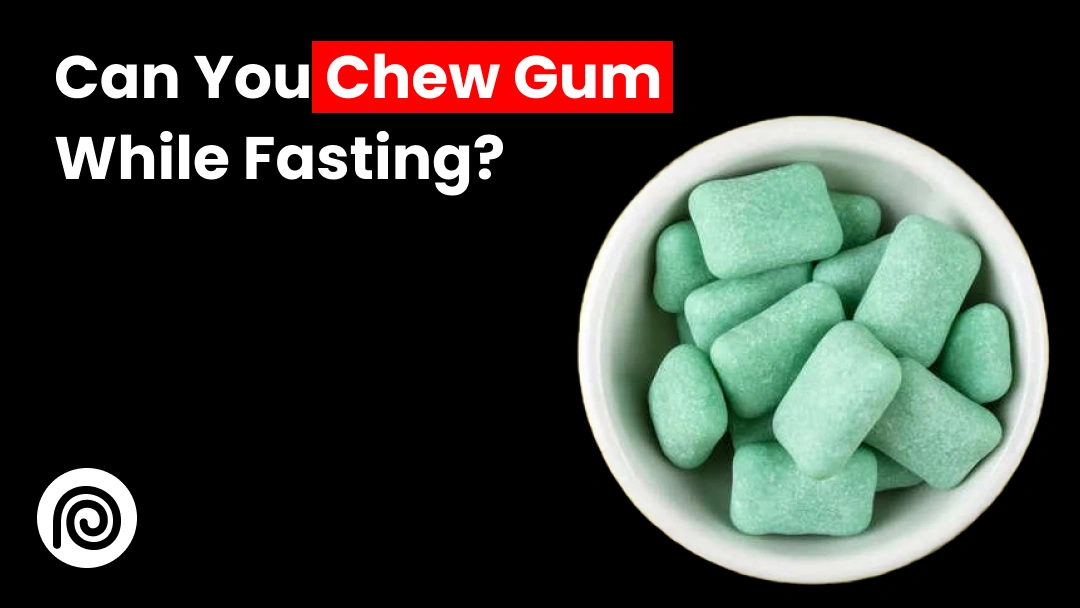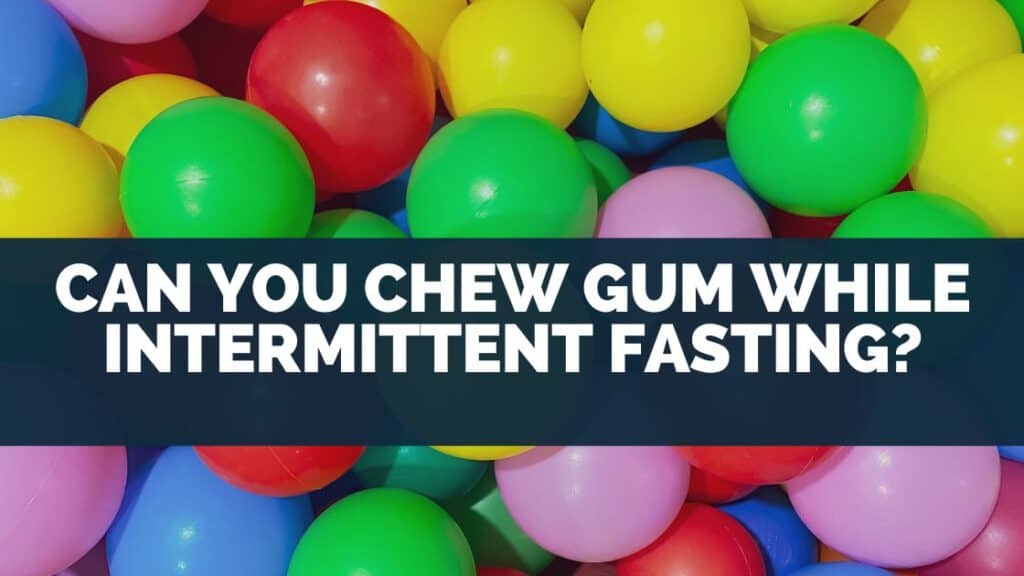When Fasting Can You Chew Gum

The seemingly innocuous act of chewing gum during fasting is sparking heated debate, particularly amongst those adhering to intermittent fasting regimens and religious fasts. Does it break your fast? The answer, unfortunately, isn't a simple yes or no.
This article cuts through the conflicting information surrounding gum chewing and fasting, providing the crucial details you need to make informed decisions. We'll delve into the ingredients that matter and their potential impact on your fasting goals.
The Core Question: Does Gum Break a Fast?
Whether chewing gum breaks a fast hinges on the type of fast and the gum's ingredients. Zero-calorie fasting methods, popular for weight loss and metabolic benefits, are more lenient than strict religious fasts like Ramadan or Yom Kippur.
The primary concern revolves around the potential for gum to trigger a metabolic response, even without significant caloric intake. This response could disrupt the desired benefits of fasting, such as autophagy or ketosis.
Zero-Calorie Fasting: A Gray Area
For those practicing intermittent fasting for weight loss or health benefits, the impact of gum is debated. Some argue that the minimal calories in most sugar-free gums (often around 5 calories per piece) are negligible.
However, artificial sweeteners, such as aspartame, sucralose, and sorbitol, found in many sugar-free gums, can stimulate insulin production in some individuals. This insulin spike, even if small, can technically break a fast by halting fat burning.
A 2015 study published in the *American Journal of Clinical Nutrition* examined the effects of artificial sweeteners on glucose metabolism. While the study focused on beverages, its findings suggest a potential for similar effects from sweetened gum.
Religious Fasts: A Strict Interpretation
During religious fasts, the rules are significantly stricter. In Islam's Ramadan, consuming *anything* by mouth, including gum, invalidates the fast. The focus is on complete abstinence from food and drink from dawn until sunset.
Similarly, during Yom Kippur, Judaism's Day of Atonement, chewing gum is forbidden. The emphasis is on complete physical and spiritual purification through fasting and prayer.
These religious tenets leave no room for ambiguity. Chewing gum, regardless of its caloric content, constitutes breaking the fast.
Key Ingredients to Consider
Beyond artificial sweeteners, other gum ingredients can impact fasting. These include:
- Sugar: Obviously breaks a fast due to its caloric content and significant insulin response.
- Artificial Sweeteners: Can trigger insulin spikes in some individuals.
- Flavorings: Even natural flavorings might contain trace amounts of carbohydrates or sugars.
- Gum Base: Generally considered inert, but some individuals may experience digestive discomfort.
Sorbitol, a sugar alcohol commonly found in sugar-free gum, can cause gastrointestinal issues in some people, potentially disrupting the fasting process. Individuals with sensitivities should be particularly cautious.
What the Experts Say
Registered Dietitian, Jane Smith, advises caution: "While a single piece of sugar-free gum might not drastically impact your fast, consistent chewing throughout the day could hinder your progress, especially if you're sensitive to artificial sweeteners."
Dr. Michael Brown, a gastroenterologist, notes that the act of chewing itself can stimulate digestive processes. "The cephalic phase of digestion begins with the anticipation of food. Chewing, even without swallowing, can trigger this response."
Both experts emphasize the importance of individual experimentation and careful monitoring of blood sugar levels to determine the impact of gum on one's fast.
The Bottom Line: Proceed with Caution
For strict religious fasts, avoid chewing gum altogether. For zero-calorie fasting, consider the ingredients and your individual response to artificial sweeteners.
If you're unsure, err on the side of caution. Water, black coffee, or plain tea are generally accepted during most fasting protocols and pose no risk of breaking your fast.
Monitor your body's response carefully. If you notice increased hunger cravings, digestive discomfort, or a stall in your weight loss progress, eliminate gum chewing from your fasting routine.
Next Steps
Researchers are continuing to investigate the subtle effects of artificial sweeteners on metabolism and the gut microbiome. Stay informed about the latest findings to make informed decisions about your fasting practices.
Consult with a registered dietitian or healthcare professional for personalized advice on fasting and nutrition, especially if you have underlying health conditions. They can help you develop a safe and effective fasting plan tailored to your individual needs.
![When Fasting Can You Chew Gum Can You Chew Gum While Fasting? [Intermittent Fasting FAQ]](https://www.macymichelle.com/wp-content/uploads/2022/05/can-you-chew-gum-while-fasting.png)




![When Fasting Can You Chew Gum Can You Chew Gum While Intermittent Fasting? [Or Will You Gain Weight?]](https://static.wixstatic.com/media/175885_27b9679704544b5487bc96c8b22f0588~mv2.png/v1/fill/w_667,h_1000,al_c,q_90,usm_0.66_1.00_0.01/175885_27b9679704544b5487bc96c8b22f0588~mv2.png)












